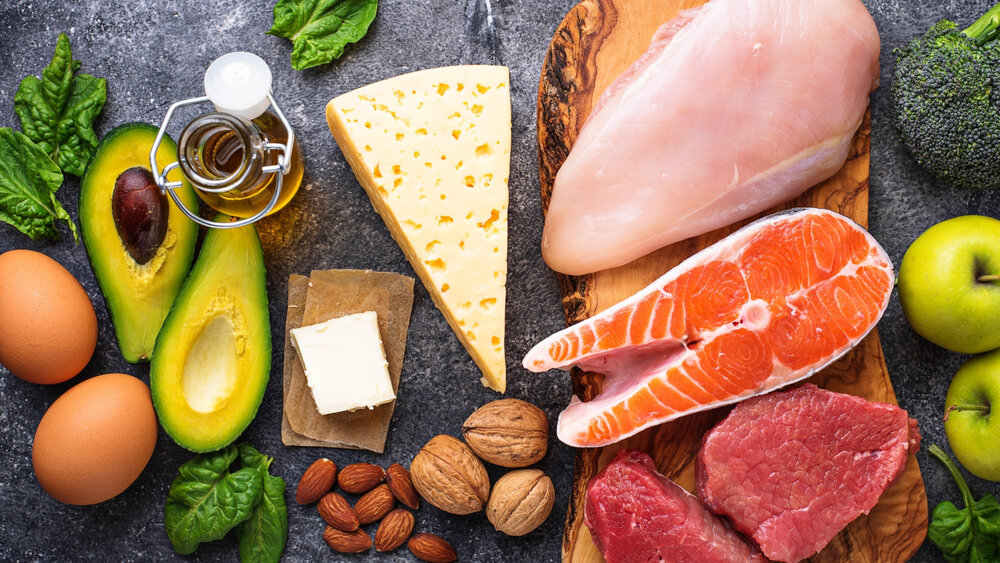Research continues to support the therapeutic potential of ketogenic diets for a growing list of conditions ranging from obesity and type-2 diabetes to neurological disorders, and cancer. Almost every day it seems like a new study is added to the diet’s repertoire of benefits; benefits that are often attributed to ketone bodies themselves. But the reality is, ketogenic diets aren’t always easy to follow, and adherence is a major barrier that prevents the ketogenic diet from reaching its full potential. The idea of achieving ketosis without having to make dietary changes has led to the development of ketone supplements, more commonly known as exogenous ketones. There are increasing number of scientific studies that are showing the efficacy of exogenous ketone supplements in neurological disorders, seizure disorders, glycemic control, athletic performance, and more.
What is ketosis?
Ketosis itself is broadly defined by the elevation of blood ketone level typically at or above the threshold of 0.5 mmol/L, regardless of their source, which we’ll get to in a moment!
What are exogenous ketones?
Exogenous ketones are ketones produced outside of the body that when ingested can elevate blood ketone levels, inducing a state of ketosis. These supplements typically deliver the primary ketone body, called beta-hydroxybutyrate (BHB), often as a tasty beverage, and induce ketosis within minutes to hours without having to reconstruct the diet or count macros.
The exogenous ketones currently available are ketone salts and ketone esters. And although not technically an exogenous ketone, medium-chain triglycerides (MCTs) can also be considered a ketone supplement, since they are rapidly converted to ketones by the liver and can induce ketosis without carbohydrate restriction.
How is this different from a ketogenic diet?
Until the introduction of exogenous ketones, the word ketosis implied that the ketones in your blood were your own (endogenous ketones), and the only way of arriving at ketosis was through fasting, carbohydrate restriction (i.e., ketogenic diets)., and/or prolonged exercise.
Ketogenic diets require chronic carbohydrate restriction, and work by depleting the body of its finite carbohydrate stores (liver glycogen), limiting glucose availability, and suppressing the hormone insulin. When the body is running low on glucose, fat is broken down as an alternative energy source. But because fat cannot effectively enter the brain and glucose can no longer meet the energy demands of the brain alone, the liver converts fatty acids to ketone bodies (ketogenesis). Ketones then enter the bloodstream and are delivered to the brain, heart, muscle, and other tissues to be used as fuel. The important thing to note here is that endogenously supplied ketones are the end result of burning fat. Therefore, the ketogenic diet requires us to consume about 70-75% of calories from fat, while simultaneously maintaining 5-10% calories from carbohydrates, which is often hard to follow or maintain long-term. Some people can achieve higher blood ketone levels faster than others.
Endogenous vs Exogenous ketosis

While endogenously and exogenously induced ketosis share a lot in common, these two avenues are not quite identical. The major difference is of course the source of ketones – endogenous (making ketones) and exogenous (taking ketones) – representing two distinct metabolic states that are important to differentiate because these differences can influence their applications.
Here’s a breakdown of their major differences:
Ketogenic diet (endogenous ketosis)
- Ketosis is chronic (long-term) so long as you maintain the diet
- Ketone body concentrations range from ~0.5 to 5 mmol/L
- The time it takes to achieve ketosis can be anywhere from days to weeks
- Associated with metabolic adaptation to ketosis (ketoadaptation)
- Requires chronic carbohydrate restriction
- Occurs in the glycogen depleted state (low glycogen)
- Ketosis is the result of burning fat/ketogenesis
- It is easy to get kicked out of ketosis by even a small amount of carbohydrate
- Requires consuming a lot of healthy fat
Exogenous ketones (exogenous ketosis)
- Ketosis is acute (short-term)
- Ketone body concentrations range from ~0.5 to 5 mmol/L depending on the type of exogenous ketone supplement and dose
- The time it takes to achieve ketosis is rapid, often minutes to hours
- Does not require carbohydrate restriction and/or low glucose availability
- Does not require 70% fat in diet
- Occurs regardless of glycogen levels
- Ketosis is the result of ingesting a supplement, not ketogenesis
The central overlap between exogenous and endogenous ketosis is their use as an energy substrate (although it could be argued this would be upregulated in the context of endogenous ketosis) and the signaling properties of ketone bodies, as once in circulation both appear to serve similar functions. Remember, both avenues induce ketosis.
Is there an advantage to exogenous ketones over a ketogenic diet?
Here’s a breakdown of their major differences:
Ketogenic diet (endogenous ketosis)
- Ketosis is chronic (long-term) so long as you maintain the diet
- Ketone body concentrations range from ~0.5 to 5 mmol/L
- The time it takes to achieve ketosis can be anywhere from days to weeks
- Associated with metabolic adaptation to ketosis (ketoadaptation)
- Requires chronic carbohydrate restriction
- Occurs in the glycogen depleted state (low glycogen)
- Ketosis is the result of burning fat/ketogenesis
- It is easy to get kicked out of ketosis by even a small amount of carbohydrate
- Requires consuming a lot of healthy fat
Exogenous ketones (exogenous ketosis)
- Ketosis is acute (short-term)
- Ketone body concentrations range from ~0.5 to 5 mmol/L depending on the type of exogenous ketone supplement and dose
- The time it takes to achieve ketosis is rapid, often minutes to hours
- Does not require carbohydrate restriction and/or low glucose availability
- Does not require 70% fat in diet
- Occurs regardless of glycogen levels
- Ketosis is the result of ingesting a supplement, not ketogenesis
The central overlap between exogenous and endogenous ketosis is their use as an energy substrate (although it could be argued this would be upregulated in the context of endogenous ketosis) and the signaling properties of ketone bodies, as once in circulation both appear to serve similar functions. Remember, both avenues induce ketosis.
Is there an advantage to exogenous ketones over a ketogenic diet?

There’s no simple answer because neither one is better than the other, they each serve very different purposes depending on one’s goals and lifestyle.
The applications of endogenous and exogenous ketosis are not interchangeable, meaning a condition that benefits from a ketogenic diet may not benefit to the same degree from exogenous ketones, and vice versa! Though, some of the benefits of ketosis are the result of ketones themselves, with no regard for source. In these cases, the choice depends on what suits you best, and exogenous ketones can offer an advantage, especially with patient populations that may find it difficult to adhere to a ketogenic diet. However, in some circumstances, the steps involved in achieving endogenous ketones (suppression of insulin, increased lipolysis, weight loss, etc.) may be part of why a ketogenic diet is therapeutic, e.g. metabolic disorders associated with insulin resistance and overweight/obesity, such as type-2 diabetes.
Let’s discuss weight loss for a moment because this is why many people turn to a ketogenic diet and there are some misleading claims surrounding this topic that often reach the general public. There is little evidence that exogenous ketones directly promote fat loss. Ketones are a source of energy, and actually dial back the breakdown of fat – why break down your own fat if you have energy freely available! Making ketones from your stored body fat is different than consuming ketones, and the latter does not represent fat loss. Exogenous ketones can certainly be included in a weight loss diet, but there is no evidence that they directly contribute to any significant weight loss.
Where exogenous ketones may offer an advantage:
- Helps during the initial phase when transitioning from standard diet to ketogenic diet /people refer to it as keto flu
- When ketosis is required in acute settings (immediate delivery of ketones)
- For disease management when a ketogenic diet is difficult to adhere to (e.g., pediatric populations, Alzheimer’s patients, etc.)
- When the therapeutic concentrations of ketone bodies needed exceeds what is typically achieved with diet alone (exogenous ketones alone or in combination with a ketogenic diet)
- Potentially for improving athletic performance without reducing dietary carbohydrates (exogenous ketones administered with carbohydrates)
- Specific military applications
Bottom line
The applications of ketogenic diets and exogenous ketones while overlapping, are not always interchangeable. There are times when one is more appropriate than the other based on the condition or one’s personal goals. Our hope is that this article helps clarify the major differences between the two for a greater understanding of their unique applications.
Written by: Kristi Storoschuk; Edited by: Dr. Dominic DAgostino, Dr. Csilla Ari Dagostino
